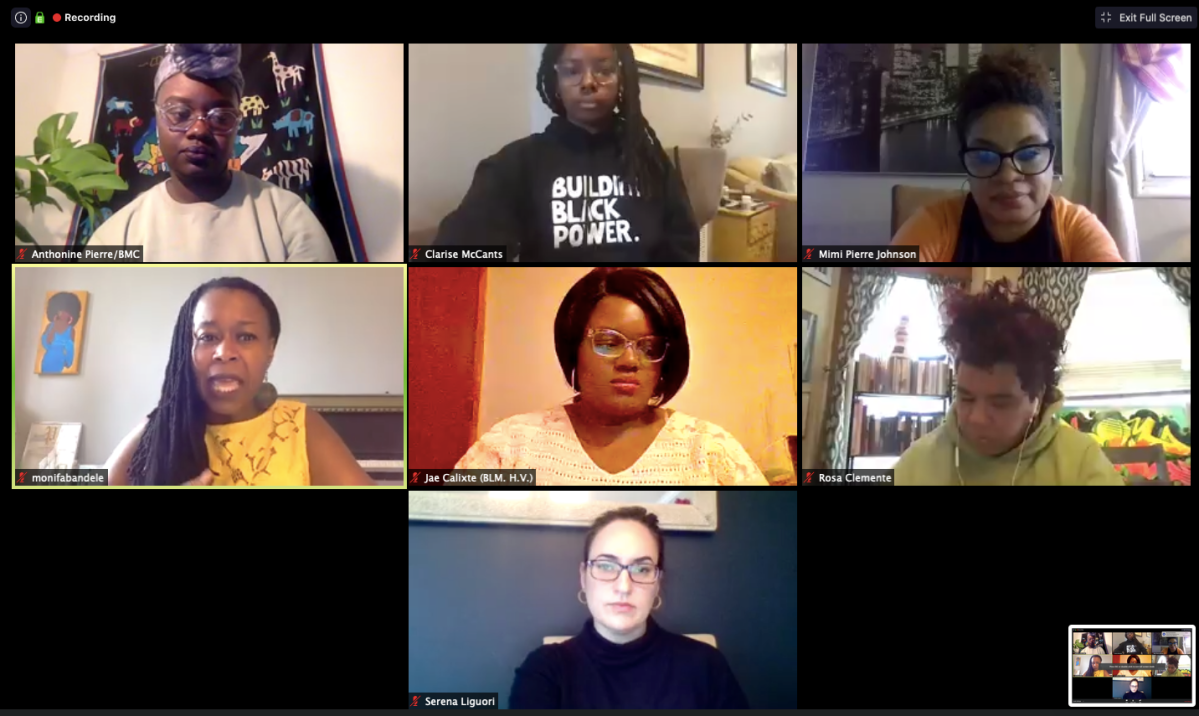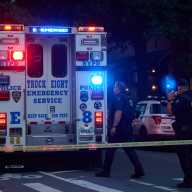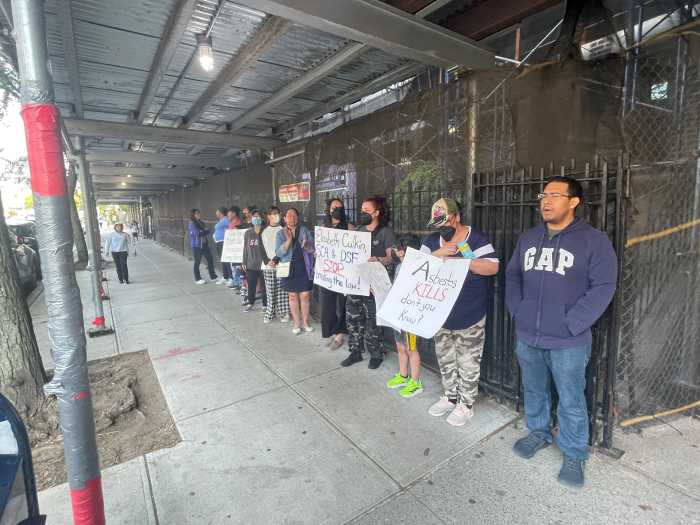Criminal justice reform advocates say legislators should make no changes to bail reform laws passed in December, especially during the COVID-19 crisis that leaves detainees at risk of contracting the virus.
Advocates held a Zoom press conference this morning where they criticized Governor Andrew Cuomo or “pushing to make changes to bail reform” that they say “will exacerbate the number of pre-trial detainees that they say will be mostly poor “black and brown people.” They say this was “the wrong time” to consider changing the law as they need “fewer people at risk of COVID-19 in jail, not more.”
Those seeking changes to the bail reform laws passed this past December and in effect for the past three months, say they want judges to have more discretion over whether a person arrested represents a threat to the public. It would also allow judges more choices, based on past arrests and crimes, currently only taking into account the last five years of someone’s criminal history – not whether they were recently arrested for something else.
The advocates, representing nine organizations and led by two assembly members, said it was too soon to say that the reforms were not working, despite the NYPD and Mayor Bill de Blasio calling for some changes in judicial discretion. The NYPD maintains that many of those released are committing new crimes while being released after arrests.
Chief Crime Control Strategies Michael LiPetri took center stage at the beginning of the month at both a budget hearing and NYPD press conference where he provided data that the department said proved that bail reform had gone awry. He said 482 people who been arrested for felonies such as robbery or burglary, accounted for 846 crimes. He said 35%, or 299 people, were arrested in the seven major categories – “the same people were committing additional crimes after being released from custody on a DAT.”
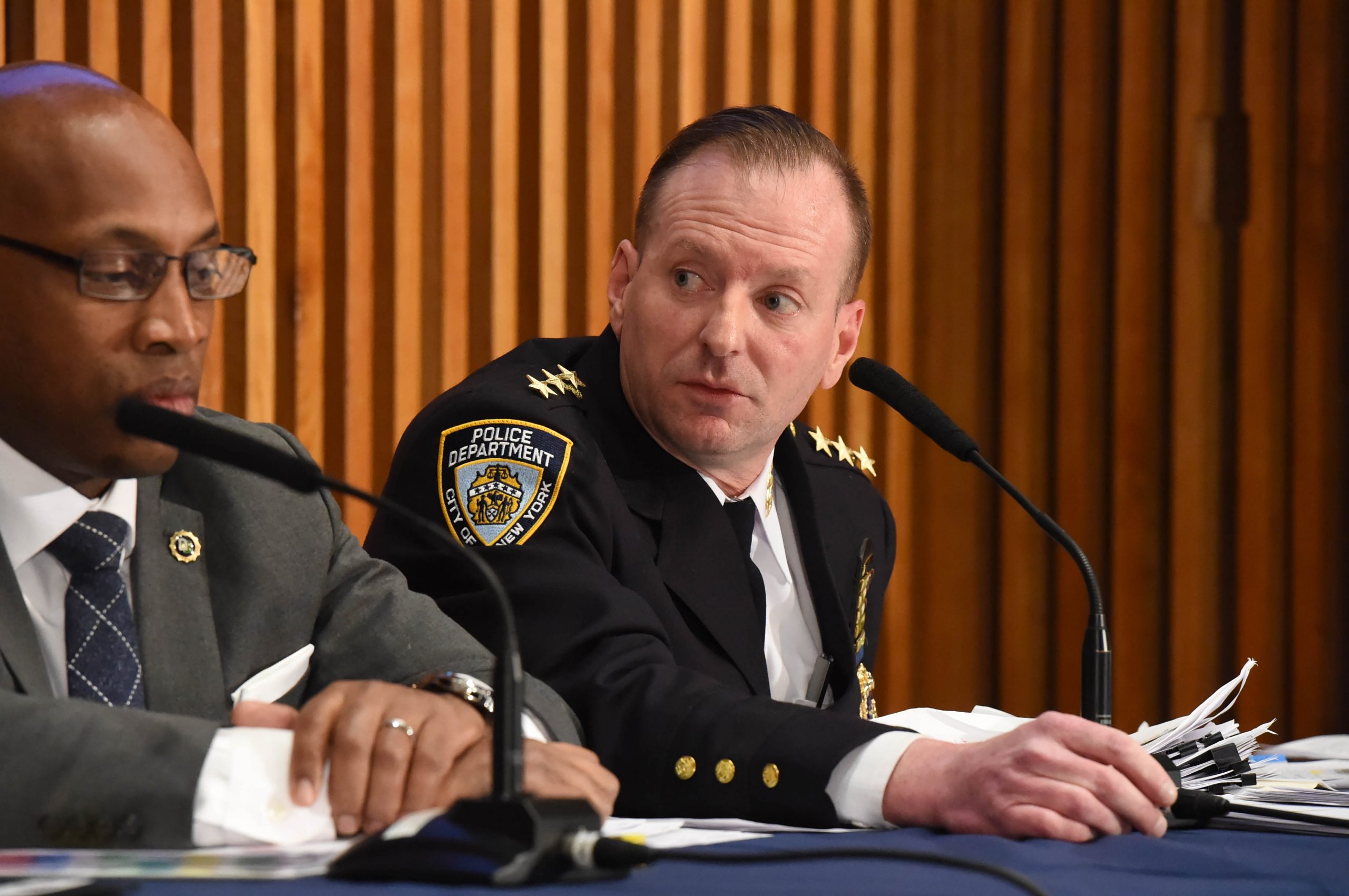
(Photo by Todd Maisel)
Assemblywoman Latrice Walker, a major defender of the criminal justice reforms, said in the conference, still wearing a surgical mask around her neck, that much of the data being released by the NYPD was “anecdotal and inflated.” She maintained that those convicted of a crime and then commits another crime can be eligible for bail. However, those who are arrested, given a desk appearance ticket and then are arrested again, are “assumed innocent and not convicted of a crime.”
Walker also said those who need mental health services, can get recommendations from a judge or even have an ankle monitor while released. However, advocates for judicial discretion say needs to be able to “mandate” mental health assistance, something they cannot do under current rules.
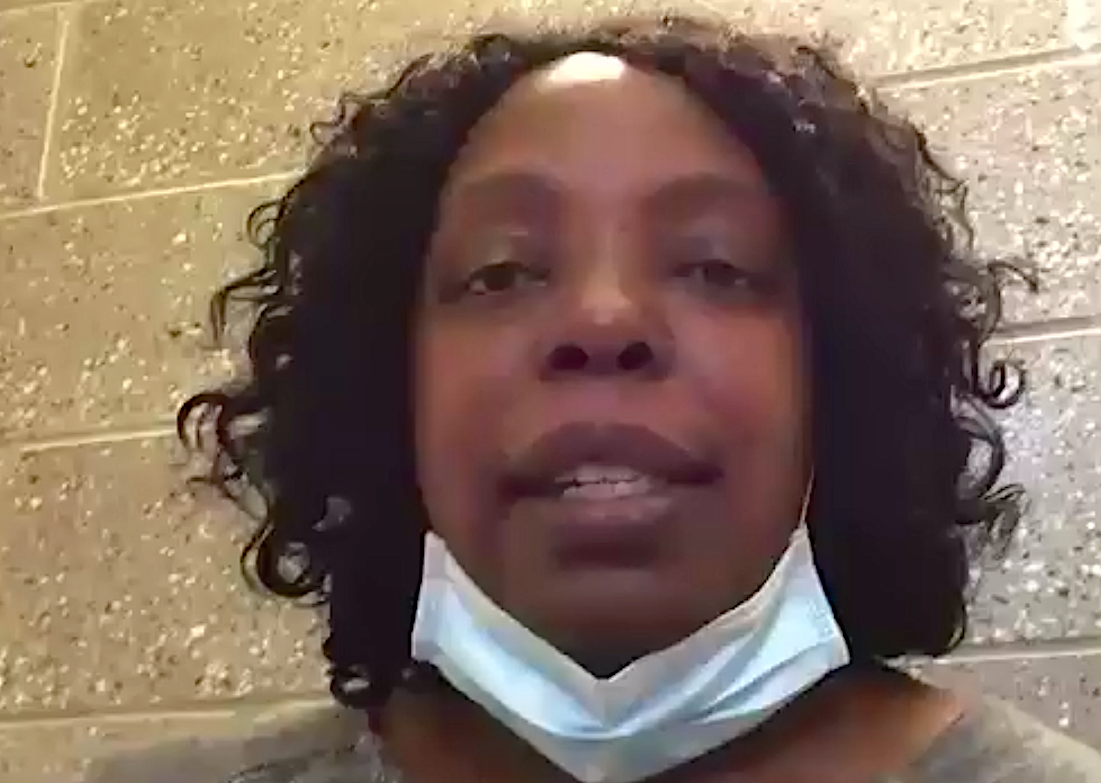
She added that district attorneys can find ways to hold suspect pre-trial and then “charge them appropriately.”
“Governor Cuomo has done a really good job dealing with COVID-19, but we are now in the midst of budget negotiations and they are talking about rolling back criminal justice reforms and it is not the time to do allow judges this illegal discretion that they used for decades and take away people’s civil liberties and rights without a conviction,” Walker said.
Assemblywoman Tremaine Wright said it was “the first time she was hearing about people being rearrested repeatedly after being released.
“Hundreds of people being released – this is riddled with assumptions and the assumption of guilt,” Wright said. “There are so many assumptions, and what’s going on in these cases, and what are the versions of truth? Are they being released under bail reform and recommitting crimes? Are they convicted? We allow people to be free until they are proven guilty. Hundreds of cases identified and we believe the public data is inflated and anecdotal.”
Advocates say the ongoing COVID-19 public health crisis makes it especially more important to maintain criminal justice reforms to not expose mostly black and brown poor people to coronavirus in jail. Some young women shared their suffering from having family members incarcerated, some suffering from untreated mental illness who may be held on drug charges or other felonies.

Monifa Bandele, of MomsRising, said pre-trial incarceration was “a senseless breaking up of families.”
“This was going o for a long time and that system has not worked,” Bandele said. “This is showing there is no value on human life, and we need to put value on it. It is a state-wide issue and the narrative is not what people see.”
The attempts to change the bail reform laws have caused a rift within the democratic party, some elected officials fear to look weak on crime. Republicans have seized on the issue, many seeking to give more discretion to judges.
Democratic Assemblyman Simcha Eichenstein, who represents the heavily Jewish neighborhoods of Borough Park and Midwood in Brooklyn, N.Y. Earlier this month, they introduced an amendment to bail reform that would classify hate crimes as a “qualifying offense,” giving the courts leeway to affix bail or keep in custody people charged with such incidents. (Senator Kaplan and Andrew Gounardes are co-sponsors of the bill in the State Senate.)
The bill comes as a result of a spate of hate crimes, most notably the Jersey City and Muncie shootings.
One advocate for changes to criminal justice reform is State Sen. Andrew Gounardes, who also represents parts of Brooklyn, is a lead sponsor in the state senate that focuses on hate crimes that he believes is “an easy fix to the bail-reform law.”
“I believe that an exemption for hate crimes to bail-reform laws is a common-sense fix that should have been included in the original negotiations last year. Especially given the recent spate of anti-Semitic crimes, this is an important change,” said Gounardes. Such measures, he said, “would divert people to the mental health services they need, ensuring they get treatment instead of worsening behind bars.”
NYPD officials claim many of the same people released with a desk appearance ticket for a felony committed murder, rape, robbery, assault, burglaries and a variety of grand larceny including car theft. That is nearly triple the amount of those crimes committed in the same 58 days in 2019. All of the people were arrested for offenses that prior to Jan 1 and bail reform, could have landed them in jail.
“Last night we arrested an individual, charged with 25 burglaries, but because there was no evidence of a firearm, you can’t give him bail,” LiPetri said at the press conference at the beginning of March. “If you are charged with one burglary or 25, the subject matter remains the same and its the same as being charged with one. Part of the problem is with discovery and we are working with DA’s office to make cases. In the meantime, there are 18 deferred cases and despite being charged with six burglaries, that person is walking around as of 1 p.m yesterday.”



